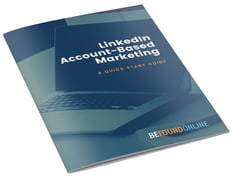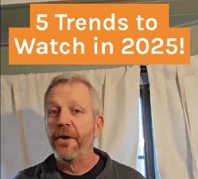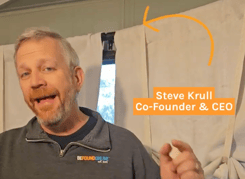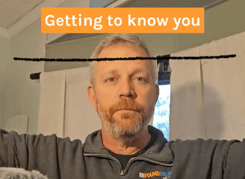The Zen of Meetings: The 7-Fold Path to Meeting Productivity
June 27, 2018
3 Minute Read

It’s amazing what the world will teach us as if by accident. This afternoon I sat down to become a better writer. I was going to go through all of the open tabs and my collection or articles saved in Pocket. I have been sitting here no more than 5 minutes reading and wouldn’t you know it, the first article has nothing to do with writing or storytelling – it’s about how to work with bad listeners. Here’s the article in case you’d like to flip through.
As I read through the first few paragraphs, I kept thinking about meetings that go badly. Those in which you can’t seem to ever get to a reasonable outcome and those where people feel like they can’t get a word in edgewise.
To me, this article isn’t about bad listeners at all. Instead, it’s a prescription for having better interactions with co-workers, clients and anyone else. It’s about setting communication guidelines for meetings to ensure there’s no animosity and everyone who wishes to speak can be heard.
In our fast-paced tech-driven world, it’s harder and harder to keep attention focused where it needs to be. You’ve got folks on the phone, in the room, and on video conference. Each wishes to contribute, but think about how much easier it is when you’re looking at someone versus talking into a box.
Consider a few weeks ago when I was looking for a meeting to begin in the office. As I walked around, I found 4 of the attendees had jumped into the video chat instead. I immediately thought “They are intent on multitasking”. To be honest, I can’t say if I was right or wrong and didn’t pursue. What I did do was to make a rule change that you’ll see below.
In reading the article and thinking about my own meetings, I’ve come up with some tips for better meetings.
- 30 Second Rule: If you’ve spoken for more than 30 seconds, take a breath, give us a chance to contribute.
- Respect Remoters: The chatter in rooms is generally unintelligible to anyone dialed in or on video. Keep the chatter to a minimum and kill the sidebars.
- Pause Please: There is a tendency to continue making noise (um, ahh, like) while we’re speaking instead of taking a break. When someone tries to break in, there are a host of responses from “Oh, ok” to hostility “I wasn’t finished”. If we pause and/or breathe once in a while those make for great logical entrances for the rest of the folks.
- 2 or More Get a Meeting Room: If there are at least 2 people who are meeting in the office, please get a meeting room to share. I don’t have anything that’s evidence-based that says you’ll be more productive. I believe it just feels better.
- Tech Check: Leave the technology at the door (assuming you’re meeting face to face) phones, laptops…all of it. The reality is that if we have our faces in the tech1) we’re not actively listening 2) it disrupts the flow when we need you 3) it’s rude.
- Side note – If you disagree with these things, please don’t come to my meetings.
- Thoughtful Listening: Forget about what you want to say next; instead, be a thoughtful listener. If you’re listening, it won’t matter what you want to say next. Active listeners build the conversation forward based on the previous speaker. If you’re listening, the conversation will flow naturally because you’re fully engaged.
- Video On – No Mutes: We all do it – when on a video conference we mute so we can tippity tap at the keyboard and nobody will know. Unmute yourself if you can and focus your attention on the important discussion at hand. Sure, if there’s noise or it’s a big meeting, that’s fine. Just don’t over-task intentionally – it’s disrespectful.
You, yes you, can make better meetings! Sure, if I’m in charge, I should have my meeting dialed in. That said, you can help me by doing your part to come ready, actively listen, and give us your brain. Think about your meetings, think about what makes a good meeting. Think about being present and intentional. Think about giving the meeting your full attention. Don’t chase down a file that is discussed unless you truly need it (99% of the time you don’t). Don’t respond to a message just because it will only take a few seconds. Give the folks in the room your undivided attention.
If you can’t, why are you there? Seriously, get up and leave or I will.

Steve Krull
As CEO/Co-Founder of BFO, Steve excels in ‘unleadership.’ (his word) Steve believes in collaboration and leading by example; remaining vulnerable and open to new ideas, accepting feedback…and doing good things.
CATEGORIES
SUBSCRIBE TO OUR BLOG
Stay up to date with the latest industry best practices in digital marketing!























.png?width=339&height=179&name=Webinar%20Banner%20(1).png)



.png?width=339&height=179&name=July%20Webinar%20(Newsletter).png)

.png?width=339&height=179&name=Webinar%20Banner-April-02%20(1).png)
%20(4).png?width=339&height=179&name=Webinar%20Banner-May-02%20(1)%20(4).png)




.png?width=339&height=179&name=March%202023%20Webinar%20Ad%20(autoresponder).png)

















































